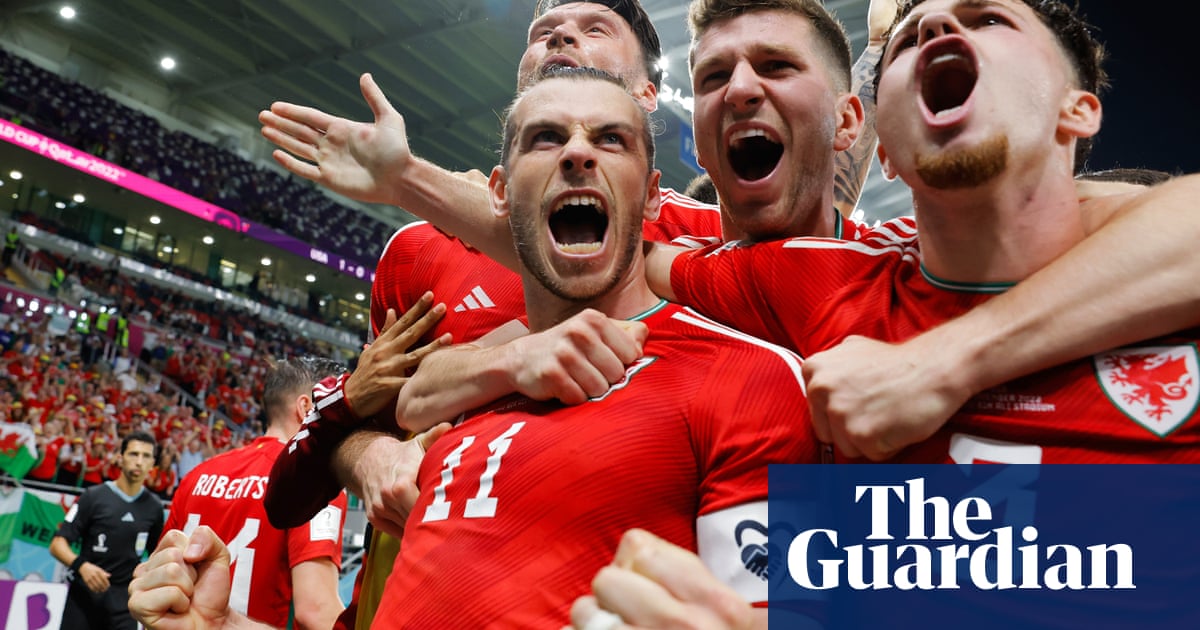
In his documentary State of Play, an examination of the current wellbeing of football aired on BT Sport last week, Michael Calvin was granted an audience with Gareth Bale. He put it to the Real Madrid winger that Rory McIlroy, in whose company Calvin had spent quality time while embedded with Europe’s 2018 Ryder Cup team at the invitation of their captain, Thomas Bjorn, had told him that when you reach a certain level as an athlete or sportsman you can no longer retain that joy you had as an innocent kid. “Have you found that?” he asked Bale.
“Yeah, 100%, he couldn’t have put it any better,” said the footballer, without hesitation. “When you’re a kid you have no thoughts in your mind, you just play it with your friends, having a laugh. When you come to the elite level, there’s all sorts of pressures and expectations. There’s people talking negatively all the time. It loses that childlike feeling. I get that it’s pretty much like that for most sports, to be honest.”
For most sports, perhaps, but not necessarily most sportsmen, although Bale has had to endure more than his fair share of negativity in recent months. One presumes that if, while playing football with his friends and having a laugh, the young, carefree Gareth had been taken to one side and told that before the age of 30 he would have won four Champions League titles with Real Madrid and still have three years remaining on a contract worth around £35m per annum, he would have been beside himself with excitement.
Now living that particular dream, it seems little short of remarkable it has turned into something resembling a nightmare. Unloved by the club’s fans and unwanted by its manager and president, Bale faces an uncertain future. One of the best players in the world, he should be able to take his pick of new employers but there is no evident clamor to secure his services. For all his pedigree and success, a long history of injuries and his prohibitive wage make him an expensive risk for elite level clubs when there are younger, cheaper options available. His cage is undeniably gilded, but it is still a cage.
His situation is strange, but not unique. Equally feted in his home country but reviled by many of his club supporters, Alexis Sánchez is the unlikely star of Mi Amigo Alexis, a movie released in Chile last week. It tells the story of a 12-year-old boy named Tito who meets and develops a friendship with the national team’s superstar. “The unexpected friendship between the child and the idol brings teachings for both,” reads the synopsis. “Tito discovers his true path in life and Alexis is reunited with the stories from his childhood that make him remember the reason why he loves football.”
The irony of such a warm and gloopy feelgood film being released at a time when its main protagonist is enduring a prolonged if highly lucrative purgatory at Manchester United is unlikely to be lost on anyone, least of all its leading man. An undeniably gifted player who appears to have severed all ties with his footballing mojo, Sánchez, like Bale, is another high-profile superstar approaching what should be his prime only to find himself in a similarly puzzling and weird limbo of being the subject of apparent indifference from the handful of clubs who can afford him. He is trapped.
Which brings us nicely to Mesut Özil. During Arsenal’s Europa League final defeat at the hands of Chelsea, the midfielder cut a forlorn figure as he trudged off the pitch to be replaced by a fringe player many had never heard of and subsequently received more than his fair share of opprobrium for yet another negligible contribution. Indeed, so far has his stock fallen that on the final whistle, a statistic materialized on social media pointing out that the German had recorded just three assists in the 2,420 minutes he played in the whole of last season, compared to four provided by Sánchez in almost half that time. It was not so much a comparison of like with like as lack with lack.
Being paid the thick end of £350,000 per week, Özil has plenty in common with Bale and Sánchez, with whom he has shared dressing rooms at Real and Arsenal respectively. Between them they have represented their countries 291 times, often with great distinction. Combined, they have accumulated a preposterous trophy haul: one World Cup, two Copa Américas, one Club World Cup, four Champions Leagues, three Spanish titles, one Argentinian Clausura, two Chilean leagues, five FA Cups, two Copa del Reys, and the English League Cup.
Added together, their weekly earnings amount to almost £1.3m, a sum their current clubs would have to pay for a combined total of eight years should all three decide to take the nuclear option and emulate Winston Bogarde, the misfit who famously refused to leave Chelsea despite their obvious desperation to get rid of him. Rather than oblige and take a pay cut to move elsewhere, the Dutchman elected to sit out a four-year contract worth £40,000 per week. “I may be one of the worst buys in the history of the Premiership but I don’t care,” he explained with commendable honesty.
Despite earning considerably more, one suspects personal pride will preclude the likes of Bale, Özil and Sánchez adopting such a stubborn stance but for now, between seasons, what McIlroy described as the joy they had playing as innocent kids must seem little more than a distant memory.
They have big decisions to make about their futures, these outcasts with nowhere to go.(The Guardian)












